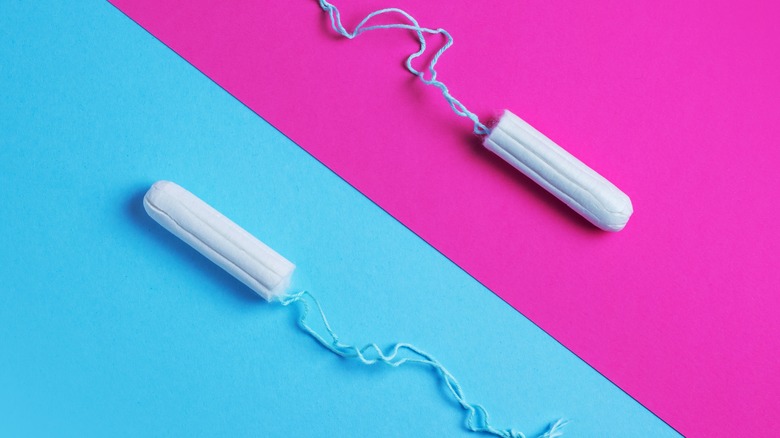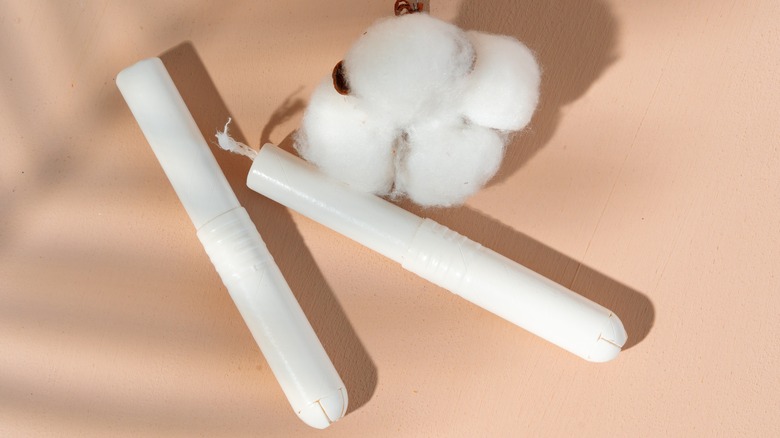Are Organic Tampons Worth The Splurge?
Organic products are everywhere you look these days. From organic produce at the grocery store to organic cotton in clothing, the term "organic" is becoming more and more ubiquitous, but what does it mean when tampons are organic? Furthermore, is it worth spending the extra cash on them?
Tampons are strictly regulated by the Food and Drug Administration (FDA) as a Class II medical device, making them similar to condoms and contact lenses, according to Healthline. This means that the FDA reviews data from manufacturers of all tampons, evaluating how safe the materials are, testing their absorbency, strength, and integrity, and checking for whether the products enhance harmful bacteria growth or change normal bacteria levels in the vagina (via FDA). While tampon brands don't need to list their ingredients, the non-organic kinds can still contain small amounts of dioxins, which are by-products of bleaching, and glyphosate, a pesticide. These chemicals are only harmful at high levels, so non-organic tampons are still FDA-approved and deemed safe.
The difference between organic and non-organic
Organic tampons, on the other hand, are created without genetically modified cotton or pesticides and are whitened with peroxide rather than chlorine (via Healthline). From the growing of the cotton to the manufacturing of the products, organic tampons need to meet these specific requirements to get the Global Organic Textiles Standard (GOTS) certification. Non-organic tampons are just as safe, but if you're worried about trace amounts of chemicals, you can opt for an organic brand.
An important distinction between organic and non-organic tampons is how environmentally friendly they are, according to The Healthy. They produce less waste and are often made by manufacturers that are more socially responsible and have safer working conditions for their employees. Some companies, like L., support philanthropic causes, working with female entrepreneurs in developing countries and donating a product to a woman in need with each one you purchase. Organic tampons are also more biodegradable than non-organic options, although both often contain plastic applicators (via Sustainability).
The bottom line? Non-organic tampons are just as safe, so the decision to spend some extra cash and switch to organic is probably more about environmental friendliness and global sustainability.


